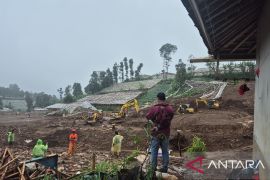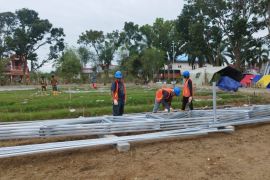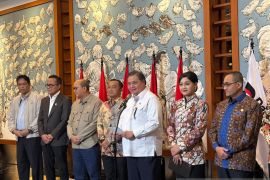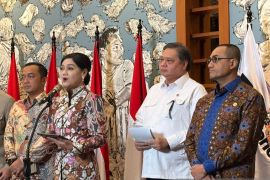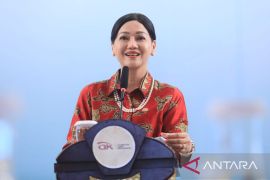"With an increased parliamentary threshold, we`ll just be flexible with the mentioned figures. We`ll also wait for friends from the other parties, the PKB, PAN, and others, in determining the suitable figure for them," PKS secretary general Anis Matta told ANTARA, Wednesday evening (Jan 12) when he attended a diplomatic function at residence of Saudi Arabian ambassador in Jakarta.
The PKS secretary general was asked for his comments on the issue after a Jakarta-based economic and social survey institute, the Lembaga Survei Indonesia (LSI), announced last week that there will be less political parties in the next general election (2014-2019) should the current minimum 2.5 percent figure be increased to 5.0 percent.
By statistic, according to LSI, only Partai Demokrat (Democrat Party) which had garnered 21.4 percent national vote in last general election (2009), Partai Demokrasi Indonesia-Perjuangan (Indonesian Democratic Party for Struggle (PDI-P) that got 14.1 percent and Partai Golkar (Functional Group Party) that would remain on the national political stage.
On that assumption, Matta said that even if the new higher parliamentary threshold was ever to be introduced, it would never crush the smaller political parties altogether.
He nevertheless acknowledged that it would anyway lessen the disparities between the middle-sized parties and the big ones.
He added experience from election in 1999 there was a major party had gotten 34 percent of the national vote, yet that particular party could only garner some 20 percent. Based on such a fact, the substantial vote obtained by the bigger parties could possibly become much less whereas the middle-sized parties` votes increase so that their strength would meet in the middle.
Matta predicted that there would be political balancing in the future in accordance with the developments of the political realities.
On the same issue, former PKS President Hidayat Nurwahid offered a similar opinion and brushed aside the possible gloomy future for his party. "Let it flow, let the discourse keeps rolling. There`s been figures mentioned, 5.0 percent, 7.0 percent and even 20 percent (for the new parliamentary threshold)," said Nurwahid who was also asked for his comments when he was in the Saudi function.
Nurwahid, former chairperson of the People`s Consultative Assembly (MPR), said that at the end of the day there would be a compromise that arrives at 4.0 percent figure for the new parliamentary threshold.(*)
Editor: Aditia Maruli Radja
Copyright © ANTARA 2011

